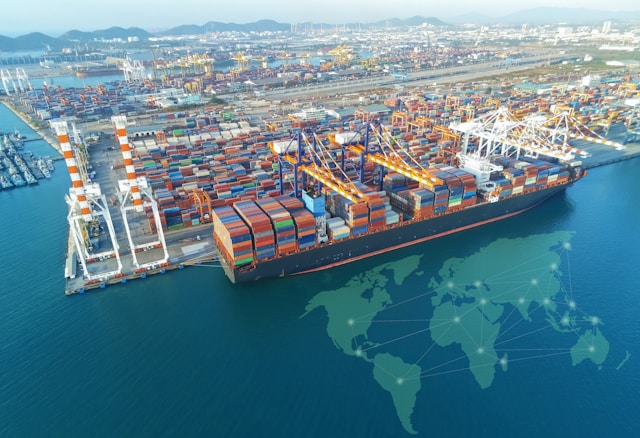In 2024, blockchain technology is revolutionizing global supply chains, offering unprecedented transparency, efficiency, and security in the logistics and manufacturing sectors. As businesses face increasing demands for speed, reliability, and sustainability, blockchain provides a robust solution to many of the traditional challenges associated with supply chain management.
This technology allows for the creation of a decentralized and immutable ledger, where every transaction along the supply chain can be recorded and verified by all parties involved. This visibility not only helps companies track products from production to delivery but also ensures the authenticity and quality of goods by preventing tampering and counterfeiting.
One of the key benefits of blockchain in supply chains is its ability to enhance traceability. Companies can monitor the origin of raw materials, the manufacturing process, shipping and handling details, and final delivery, all in real time. This level of detail is particularly valuable in industries such as pharmaceuticals and food and beverage, where safety and compliance are paramount.
Moreover, blockchain facilitates better compliance with regulatory requirements. Automated smart contracts can execute transactions and release payments only when certain conditions are met, such as compliance with safety standards or delivery deadlines. This automation not only speeds up operations but also minimizes errors and reduces the need for manual oversight.
Sustainability is another area where blockchain is making a significant impact. By providing clear data on the environmental footprint of supply chain activities, companies can identify areas for improvement and make more informed decisions about resource usage, waste management, and carbon emissions. Consumers increasingly demand such transparency as they prefer products that are sustainably sourced and responsibly produced.
Despite its benefits, the adoption of blockchain technology in supply chains is not without challenges. The initial setup and integration into existing systems can be costly and complex. There is also the need for widespread stakeholder agreement and collaboration to ensure that the blockchain network is robust and effective across the entire supply chain.
However, the potential benefits are compelling enough that many major companies and industries are moving rapidly towards its adoption. As we progress through 2024, blockchain is set to become a standard technology in supply chain management, transforming global trade networks into more transparent, efficient, and secure systems. This shift not only improves business operations but also contributes to a more trustworthy and sustainable market environment.
